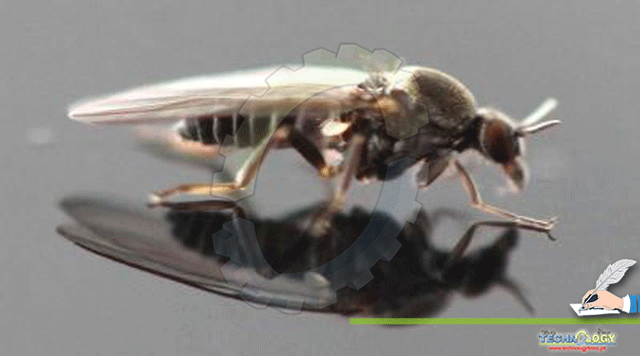Be aware of black flies, as they are robust flies that are annoying biting pests of wildlife, livestock, poultry, and humans. Their blood-sucking habits also raise concerns about the possible transmission of disease agents

By Dr Abdullah G Arijo
In humans, black flies typically bite near the head or face. Their bites leave a small puncture wound and can result in anything from slight swelling to a swollen bump the size of a golf ball. Other symptoms can include headache, nausea, fever, and swollen lymph nodes.
Arthropods per se are the most successful creatures in kingdom Animalia with over one million discovered species out of a total of 1.5 million species existing on earth. Class Insecta having lions’ portion as 70 per cent are the true flies including Black flies.’
Over 2,200 species of black flies have been formally named, of which 15 are extinct. Black flies are found worldwide, except in Antarctica for life-supporting abiotic factors are not available there
They can be found virtually anywhere there is flowing water to serve as a habitat for larvae. Black flies are often attracted to dark clothing, much like the shade or darker areas.
Black fly larvae and pupae develop in flowing water, typically non-polluted water with a high level of dissolved oxygen. Suitable aquatic habitats for black fly larval development vary greatly and include large rivers, icy mountain streams, trickling creeks, and waterfalls.

The bites of black flies cause a painful dermal trauma, which may bleed even after the insect’s blood meal. The pinnae may develop severe dermatitis, associated with exudation, encrustation and thickening of the epidermis. In animals, they produce restlessness resulting in production losses.
Black flies can be annoying biting pests, but none are known to transmit disease agents to humans in the U. S. However, they transmit one parasitic nematode worm that infects humans in other regions of the world.
There are quite a few remedies, to beat the black flies, however, herbs like basil, coriander, and anise planted in a garden are thought to repel this nasty pest at the bay.
Keeping black flies away from home requires some tricks including
- Wearing light-coloured clothing makes you a less obvious daytime target for biting insects.
- Wearing long-sleeved, loose-fitting clothing when outdoors.
- Using insect repellent containing DEET.
- Using natural repellents like vanilla extract or lavender.
According to local wisdom, if an onion after pealing is cut into 4 pieces and placed in a sleeping room, the pungent smell repels the black flies within the home.
Getting rid of black flies isn’t easy, and will require some environmental considerations. Black flies, also known as Buffalo Gnats or Turkey Gnats are a big problem where there’s running water nearby.
Use cinnamon as an air freshener, as flies hate the smell! Lavender, eucalyptus, peppermint, and lemongrass essential oils – Not only will spray these oils around the house create a beautiful aroma, but they will also deter those pesky flies too.
Cinnamon is a spice obtained from the inner bark of several tree species from the genus Cinnamomum. Cinnamon is used mainly as an aromatic condiment and flavouring additive in a wide variety of cuisines, sweet and savoury dishes, breakfast cereals, snack foods, tea and traditional foods.